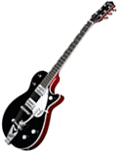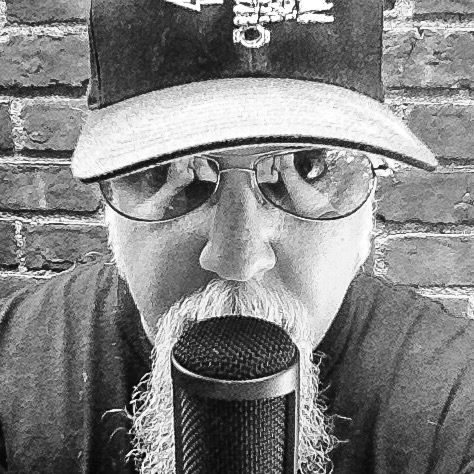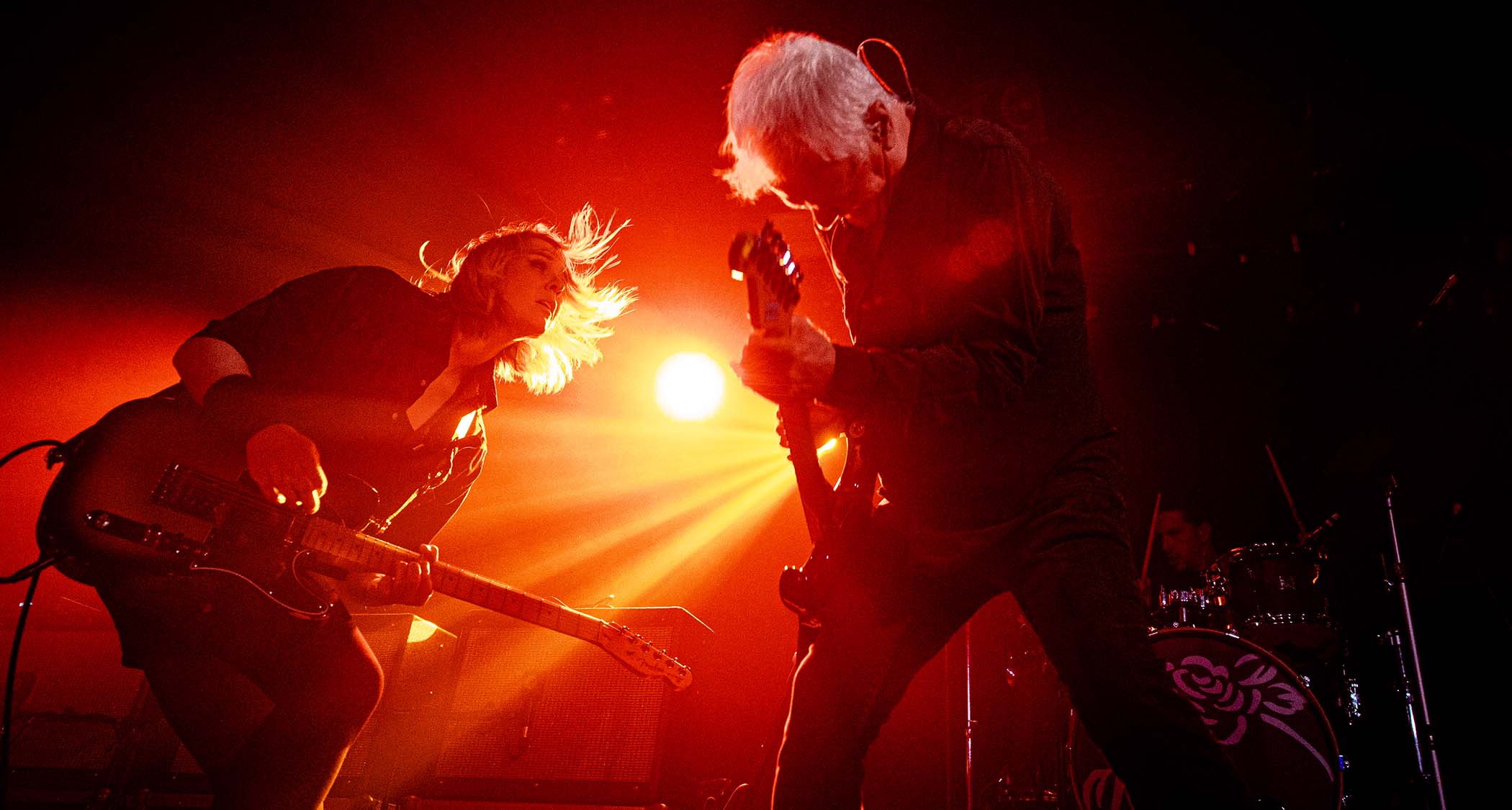Gretsch G6128T-TVP Power Jet Electric Guitar
All the latest guitar news, interviews, lessons, reviews, deals and more, direct to your inbox!
You are now subscribed
Your newsletter sign-up was successful


Gretsch will always be associated with rockabilly and the Beatles, but plenty of hard rockers have strapped on Gretsch guitars over the years. The solidbody Duo Jet is a particular favorite of players like AC/DC’s Malcolm Young, Billy Zoom of X and Aerosmith’s Joe Perry, who love the Duo’s snarling rhythm tones and honking lower midrange.
Gretsch currently makes several variations of the Duo Jet model, including versions identical to the ones played by George Harrison, Cliff Gallup (guitarist with Gene Vincent and the Blue Caps) and Malcolm Young, but their new G6218T-TVP is designed for hard rockers who want more modern tone without sacrificing that classic Gretsch look and feel. The Power Jet’s basic design most closely resembles that of a late-Fifties Duo Jet, featuring “thumbnail” Neo- Classic fingerboard inlays, a 24.6-inch scale and Gretsch’s unique dual-toggle and triple-volumecontrol circuit, but it features several “upgrades” that make it a thoroughly modern ax.
Features
To make the Power Jet more appealing to today’s players, Gretsch made several improvements to the classic Duo Jet design. The most significant difference is the pair of TV Jones Power’Tron pickups installed in the neck and bridge positions. Although they look identical to original Gretsch Filter’Tron humbuckers, they have considerably more output and much fatter tone, especially when harnessed to a high-gain amp. Another significant difference is the Adjusto-Matic bridge, which has individually adjustable saddles for each string and is “pinned” to the top with a pair of Allen screws that allow it to float without moving under pressure. Other modern touches include Schaller straplocks and locking Sperzel tuners, which allow you to abuse the Power Jet’s Bigsby vibrato without knocking the strings out of tune.
Beyond that, the Power Jet shares identical distinguishing characteristics that have made the Duo Jet stand out from the crowd all these years. An arched laminated maple top caps a solid mahogany body featuring carved-out resonance chambers, an original Gretsch innovation that came back in style in the Nineties when dozens of guitar makers adopted it into their own designs. The resonance chambers make the Power Jet exceptionally light (my evaluation model tipped the scales a little over six pounds) and enable it to deliver impressive volume and acoustic-like tone when strummed unplugged. The single-piece mahogany neck has a solid, chunky feel, and its ebony fingerboard features a 12-inch radius and 22 medium jumbo frets to make string bending an absolute pleasure whether you’ve strung your guitar with heavy-gauge telephone wire or ultralight-gauge cheese cutters.
Sound
If you’ve found the Gretsch sound a little wimpy, you owe the Power Jet a second look. Power’Tron humbuckers deliver significantly more midrange bite than any previous stock Gretsch pickup. Their tone falls somewhere between the fatness and warmth of Gibsonstyle humbuckers and the beefy twang of P90s. The pickups lack that distinctive lowermidrange honk and throatiness of an original PAF Filter’Tron, providing more of a bump in the upper midrange that makes the guitar’s treble sound fatter and increased output that generates more sustain. Rockabilly purists may moan, but Gretsch makes dozens of other models that address their desires, and it’s about time that rockers got a Gretsch model all to themselves.
All the latest guitar news, interviews, lessons, reviews, deals and more, direct to your inbox!
The three rotary controls consist of a master volume and individual volume knobs for the neck and bridge pickups. A threeposition “tone color” toggle switch located below the three-position pickup selector toggle provides the guitar’s only internal means of modifying tone. Tone is unaffected with the toggle in the center position, while the “up” position emphasizes bass and the “down” position rolls off treble. This is one Gretsch quirk that players either love or hate; many find that the alternate positions simply make the tone too muddy or overly boomy. However, this feature has survived more than 50 years, so someone out there must really dig it.
The Bottom Line
The Power Jet successfully straddles the line between vintage appeal and modern tone. If you’ve shied away from playing a Gretsch because you think it won’t be able to rock hard enough, the Power Jet may change your opinion. With its glossy Jet Black finish and chrome-plated hardware, the Power Jet looks like it means business, and thanks to its gnarly Power’Tron pickups, it sounds that way, too. The crop of Gretsch guitars produced since Fender started working with the company in 2002 are the company’s best ever, so there’s never been a better time to join the growing ranks of Gretsch players.
Chris is the co-author of Eruption - Conversations with Eddie Van Halen. He is a 40-year music industry veteran who started at Boardwalk Entertainment (Joan Jett, Night Ranger) and Roland US before becoming a guitar journalist in 1991. He has interviewed more than 600 artists, written more than 1,400 product reviews and contributed to Jeff Beck’s Beck 01: Hot Rods and Rock & Roll and Eric Clapton’s Six String Stories.

